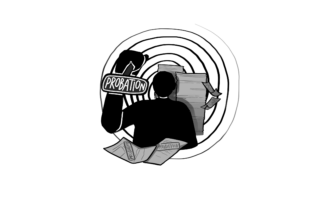This November election season, San Francisco’s Proposition F, if passed, will allow 16 and 17-year-olds to vote. Although San Francisco is the first major city to consider lowering the voting age, Takoma Park and Hyattsville, Maryland have a 16-year-old voting age requirement. San Francisco’s measure would only permit 16 and 17-year-olds to vote in city elections. Many argue that 16-year-olds aren’t mature enough to vote yet, but we believe voting rights ought to be expanded to 16 and 17-year-olds.
According to The Nation, in the 2014 elections, only 19.9 percent of voters aged 18 to 29 voted and 46.7 percent of the age group registered to vote. The 18 to 29-year-old age group has the lowest voter turnout percentage of any other age group. If 16 to 17-year-olds were allowed to vote, they would be voting in the household of their parents, instilling good habits at a young age, continuing into adulthood.
However, many believe that 16 and 17-year-olds will follow their parents’ lead and vote as their parents do. Although some 16 and 17-year-olds may vote with their parents, teenagers are also in school, so they learn about politics and can make educated decisions on their own. In fact, many teens are more educated than some adults, who may not be as knowledgeable about politics. Participation in elections will make 16 and 17-year-olds more knowledgeable about politics because they will educate themselves on the ballot.
If teenagers were able to vote, teachers might be more encouraged to teach about the election in class. Teachers could even help students register to vote, instilling good habits. Teenagers will become more interested in politics because they have a chance to vote. Sometimes, 16 and 17-year-olds don’t care about elections because they feel like they don’t have a voice or can’t affect the results. Giving them the chance to vote validates their opinions.
Additionally, having the voting age at 18 is difficult because many 18-year-olds are in a phase of transition, with some moving to college all the way across the country, making it harder to vote. When, say a California native moves to North Carolina, the voter is voting on measures about North Carolina, not California. By lowering the voting age, 16 and 17-year-olds will have the chance to vote in their hometown, which they know and in which they can create change.
Sixteen and 17-year-olds have the consideration and judgment to vote wisely as older individuals do. Allowing 16 and 17-year-olds to vote will increase participation in the voting process and include the voice of the younger generation, who will eventually have to live through the changes that elections create.


